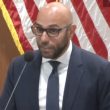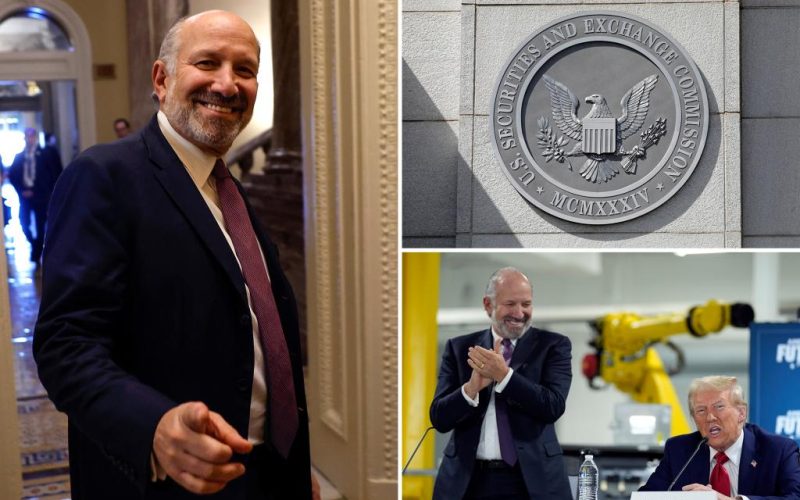Cantor Fitzgerald, the Wall Street firm headed by President-elect Donald Trump’s pick to serve as Commerce Secretary, will pay a $6.75 million civil penalty after it was accused of breaking disclosure laws by the Securities and Exchange Commission.
The SEC said that the global financial services firm violated laws governing disclosures tied to so-called “blank-check companies.”
The federal regulatory agency said that Cantor was charged with “causing two special purpose acquisition companies (SPACs) that it controlled to make misleading statements to investors” ahead of their initial public offerings in 2020 and 2021.
Cantor, whose chairman and CEO is Trump transition co-chair and Commerce Secretary-designate Howard Lutnick, agreed to settle the charges by pledging to pay $6.75 million in civil penalties to the SEC.
The company has also vowed to not violate securities laws at issue in the case.
Mark T. Uyeda, an SEC commissioner, published a dissenting statement in which he disagreed with the agency’s conclusion that investors were harmed.
“No investor was ever harmed by the alleged issues described in the order,” a Cantor spokesperson told The Post. “We are pleased to have concluded this matter by mutual agreement with the SEC.”
The charges were related to Cantor’s management of CF Finance Acquisition Corp II and CF Acquisition Corp V, which raised $750 million from investors through IPOs ahead of the firms’ mergers with View, Inc. and Satellogic Inc, respectively.
“The SEC’s order finds that Cantor Fitzgerald caused the SPACs in their SEC filings to deny having had contact or substantive discussions with potential business combination targets prior to their IPOs,” the agency said in a press release from Thursday.
At the time of the two IPOs, Cantor personnel acting on behalf of the blank-check firms “had already commenced negotiations with a small group of potential target companies for the SPACs, including with View and Satellogic, the companies with which the SPACs eventually merged,” according to the SEC.
“Cantor Fitzgerald misled investors about a critical investment consideration by repeatedly stating in public filings that it had not identified or approached any potential merger targets, despite having had substantive discussions with several private companies regarding a potential merger, including with the companies with which its SPACs eventually merged,” said Sanjay Wadhwa, acting head of the SEC’s Division of Enforcement.
Lutnick, who joined Cantor in 1983 and then quickly rose through the ranks to become president and CEO in 1991, was in the running for the Treasury Secretary post that eventually went to former George Soros money manager Scott Bessent.
The Cantor chief, who was a prolific fundraiser for Trump, had the support of another major Trump donor, Tesla CEO Elon Musk, who has had his own run-ins with the SEC.
Earlier this week, the SEC said in a letter to Musk lawyer Alex Spiro it had reopened an investigation into Musk’s brain-chip startup Neuralink.
Musk on Thursday posted the letter that his attorney received from the agency which included a “settlement demand” — or “face charges on numerous counts” regarding “Certain Purchases, Sales and Disclosures of Twitter Shares.”
“Oh Gary, how could you do this to me?” Musk wrote on X in a reference to outgoing SEC Chair Gary Gensler.
The post included an emoji showing a face holding back tears and a copy of Spiro’s letter.
Musk also posted an AI-generated image of Gensler depicting him as a snail-like creature in a suit.
A federal judge in November rejected the SEC’s request to sanction Musk after he failed to appear for court-ordered testimony in relation to the Twitter takeover probe on whether Musk violated securities laws in 2022.
The commission had also sued Musk in 2018 over his Twitter posts about taking Tesla private.
He settled that lawsuit by paying a $20 million fine, agreeing to let Tesla lawyers review some posts in advance and stepping down as chairman.
With Post Wires








